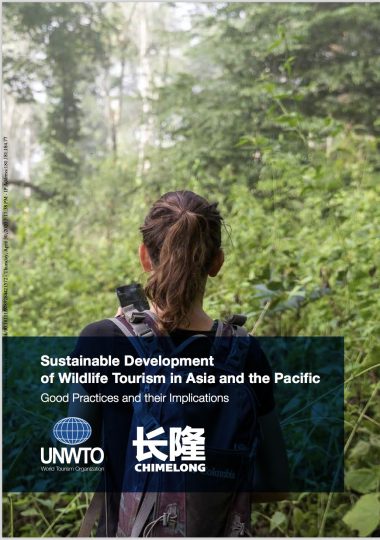UN’s World Tourism Organisation last year commissioned Professor Noel Scott (who subcontracted WTA chair Dr Ronda Green as co-editor, with UNWTO’s approval) to put together a report on good practice examples of sustainable wildlife tourism in Asia and the Pacific. After many months that report is now available as a free downloadable pdf. Dr Scott is a WTA member, as are several others who assisted with authoring chapters, reviewing or providing information.

World Tourism Organization and Guangdong Chimelong Group (2020), Sustainable Development of Wildlife Tourism in Asia and the Pacific: Good Practices and the Implications. UNWTO, Madrid, DOI:
https://doi.org/10.18111/9789284421572
Published: April 2020 Pages: 136eISBN: 978-92-844-2157-2 | ISBN: 978-92-844-2156-5
From their website:
“Set within the framework of the UNWTO/Chimelong Initiative, this report illustrates 13 good practice cases in wildlife tourism. A further 5 snapshots are examined briefly to illustrate the breadth and importance of wildlife tourism across Asia and the Pacific.
In order to reflect the diversity in both geographical scope and market segment of the sector, a variety of operations were selected including examples from the private sector, the accommodation and transport sectors, as well as from visitor attractions. At the same time, the report offers a range of examples of tourism being used to safeguard habitats and species, both terrestrial and marine.
While the rapid growth of the sector is noted and important components of wildlife tourism are discussed, this report aims to highlight the positive impacts resulting from the implementation of sustainable policies and practices within the wildlife tourism sector in Asia and the Pacific. It examines only non-consumptive forms of wildlife tourism (no hunting, fishing or collecting) and concentrates on the viewing of wild“
